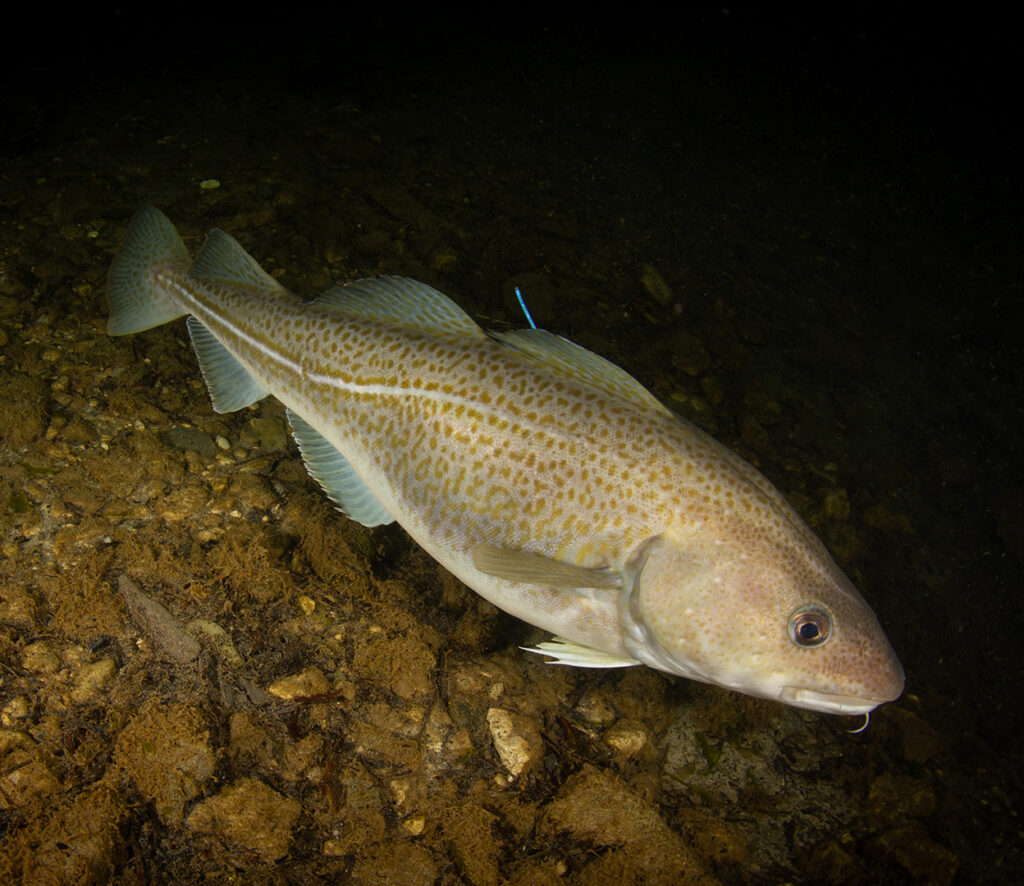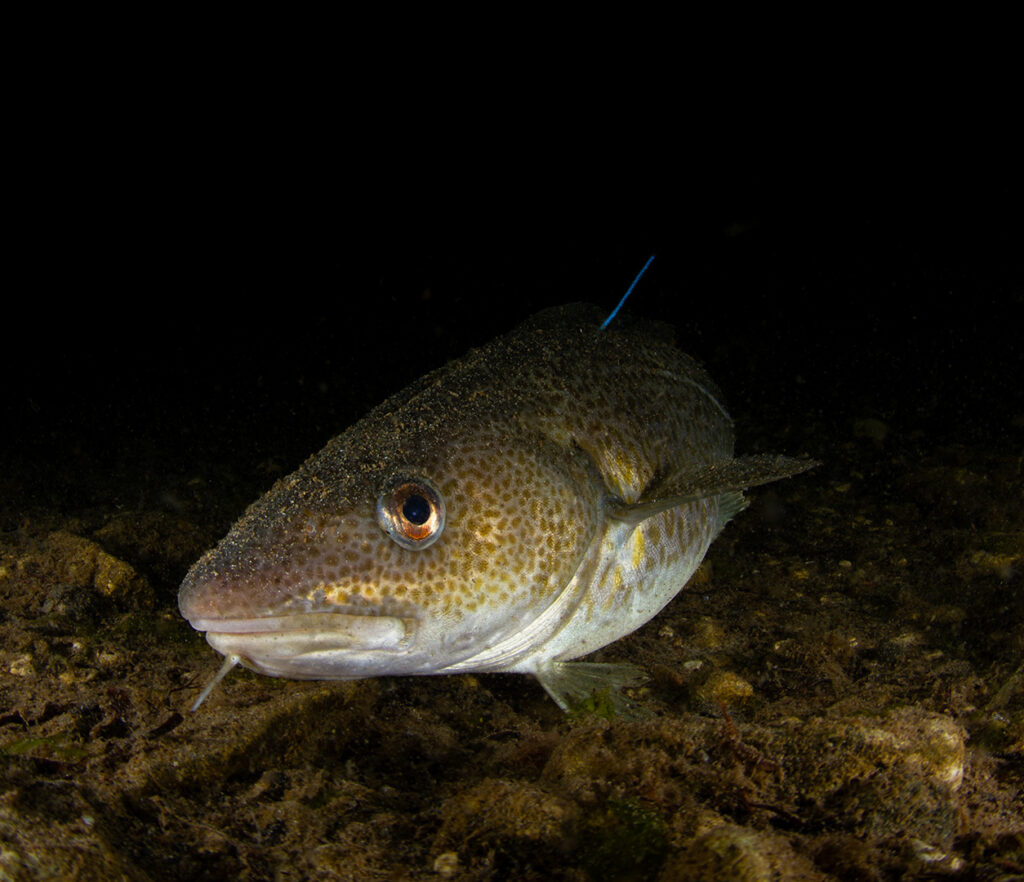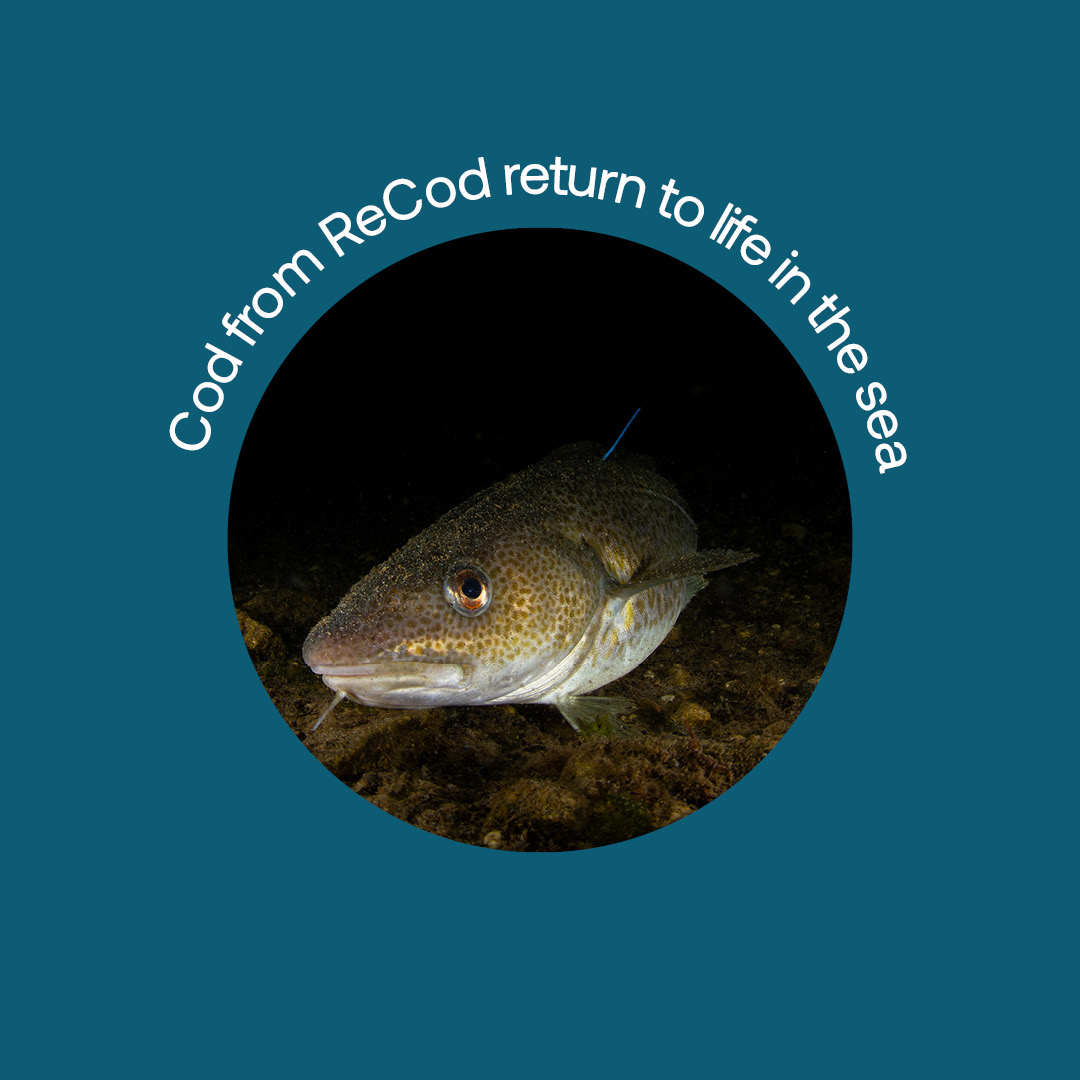The fog is thick and the thermometer shows two degrees in the water. Despite a dry suit and warm undergarments, the cold is palpable as we descend below the surface. We are documenting when sixteen cod from the project ReCod – release of small cod in the Baltic Sea will leave the life of the research station behind and return to the sea. It´s not the most comfortable conditions, but for the cod the cold water is not an obstacle, quite the opposite.
“Cod is a cold-water species, meaning it is well adapted to cold temperatures and does not thrive in warm water. The fish being released today have spent a year at the research station and have grown considerably during their time with us! When the fish first arrived to the project, they weighed an average of about 300 grams and now these fish have an average weight of about 2 kg,” says Johanna Fröjd, project manager for ReCod.
Johanna and Susanne Ragnarsdotter, operations technician, take turns going to the car trailer where a large barrel containing the cod is located. They carefully pick up a fish at a time placing it in a bucket and walk down to the shore where they slowly tip the bucket. One by one, the cod follow the bottom to greater depths where they disappear into the sea.

Photos: Madeleine Kullenbo, BalticWaters

Film clip: Johanna Fröjd and Konrad Stralka, BalticWaters
“Preparations for the release begin several weeks beforehand. The cod are measured, weighed and given their special external tag for identification, in case someone catches a cod as by-catch. As the cod can sense that something is happening, we do what we can to minimize their stress. They have also been allowed to swim in pools with flowing water directly from the Baltic Sea to get used to the conditions in the sea,” says Susanne and continues:
“We have done everything we can to make them feel comfortable at the station, but releasing them into their proper environment, after a ‘job well done’, feels really good!”.
We wish the cod good luck!
Why does ReCod release large cod?
To ensure genetic variation in cod larvae hatched and released into the Baltic Sea, the parent fish are released back into the sea after they have lived and spawned at the station for about 1-3 years. In total, 150 ReCod cod have been released back into the Baltic Sea.

About ReCod
The project is carried out at the research station Ar on Gotland – in the middle of the Baltic Sea. The goal of ReCod is to conduct experiments with the release of 4–6-day-old cod larvae at several locations along the east coast to investigate whether the larvae survive and successfully establish themselves. If the experiments are successful, there is the possibility of reintroducing cod in the Baltic Sea at more locations, thereby increasing the chances of preserving and protecting the unique eastern stock. ReCod is implemented and financed by BalticWaters and Uppsala University.
Would you like to know more? Visit the project’s website.

